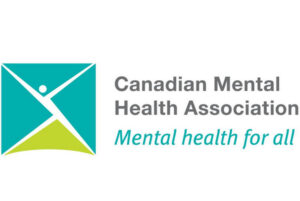Watch over each other during these trying times
By GILLIAN SLADE on August 5, 2020.
gslade@medicinehatnews.com
The prolonged situation regarding COVID-19 plus a feeling of having no control over what is happening, is resulting in increased anxiety for many, says the Canadian Mental Health Association.
Talking to someone about how you feel is an important step and there are supports available, said Breanne Mellen, suicide prevention program co-ordinator CMHA southeast Alberta.
Mellen says when you observe those around you, you may notice signs that they are not doing well. Sometimes their behaviour changes and they start withdrawing or isolating themselves – spending more and more time alone. There may be changes in sleeping patterns – either sleeping more than usual or struggling to sleep. This can also apply to eating and there may be increased use of drugs and/or alcohol.
“Giving away prized possessions is a sign,” said Mellen. They may say that they want to give it to someone who will love it as much as they do.
Behavioural changes can also include different moods.
“They might talk about being depressed or anxious, humiliated or guilty. Their irritability might also increase, they’re less tolerant of change and conflict in their life,” said Mellen.
Someone who is typically a happy-go-lucky individual but then starts talking about feeling guilty could be an indication that they need help, she said. Sometimes the individual may reach out for help, through the behaviours discussed above, but it may be hard for friends and loved ones to recognize it at the time.
“They’re asking someone to potentially notice what is happening for them,” said Mellen. “We always say it is really that marked change in behaviour … something is going on.”
Mellen says these can be indications that it is time for a conversation.
“Talk is one of the best things that we have,” she said. “Letting them know that you noticed … can be a reason why they get help. It shows them that you care – by having a conversation with them.”
Mellen says your conversation can be straightforward. You can say what changes you have noticed in them and ask directly if they are thinking about suicide.
“It is a very forward and open conversation. Almost blunt in nature but it has to be truthful.”
There should be no condemnation if a friend or loved one did not see the signs.
If you need help right now help is only a telephone call away.
If suicide is a possibility, call 911.
Alberta Mental Health Help Line: 1-877-303-2642
Alberta Addictions Helpline: 1-866-332-2322
Distress Line of South Western Alberta: 403-327-7905
First Nations and Inuit Hope for Wellness Help Line: 1-855-242-3310
Kids Help Phone: 1-800-668-6868
Rural Distress Line: 1-800-232-7288
You can dial 211 to speak to an information and referral specialist between noon and 8 p.m. daily.
24
-23

